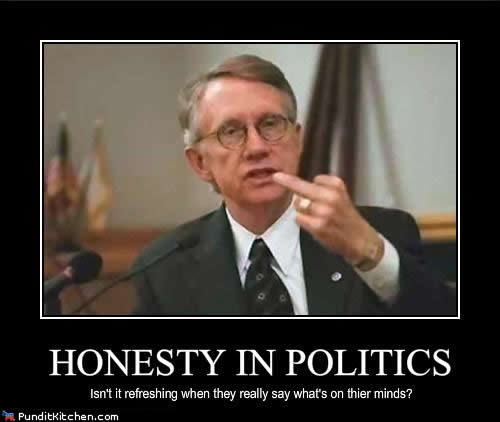Some people write nothing but political blogs, usually party political blogs of one sort or another, though badger baiting might be another way to put it. Many of my blogs are political in the widest sense but almost never about the punch and judy politics practised by parties at Westminster. My contention is that most people are political (small P) without even thinking about it – in fact they would probably deny it, if asked – but not Political (capital P) in the formal sense. What matters is issue politics – making the right choices to improve life for the majority and the minority. Most of what goes on in Parliament might be seen as a distraction from the things that matter, not enabling them to happen. In fact, listen to many politicians and you will wonder which planet they are on, so divorced are they from reality and the lives of ordinary constituents. Some might have been born with a silver spoon and genuinely not know how people on a tight budget live, but others seem to forget entirely what life was like before they got into politics.
Which all makes it a tad ironic that one party leader chose to make a point of launching a council election campaign with a pledge to govern “not just for the wealthy few” in response both to the high proportion of exceedingly wealthy and privileged among the cabinet, but more particularly a budget that seemed to reward those at the wealthier end of society far more than those nearer the bottom. But then, all politicians are much given to sound bites, and as we all know what they do in office is greatly different to what they say they will do.
If you’re thinking manifesto, think again. This are sales brochures, not a serious commitment to do anything, and frequently they are noticeable more for what they don’t say as what they do. Quite apart from the pledges that are quietly forgotten, there was no mention in any manifesto of the current healthcare reforms, the biggest in the history of the NHS, yet they surfaced and were dragooned through parliament. You might think that meant there was no electoral mandate in that case, but the sad fact is that governments do what the hell they like or can get voted through the Commons and the (unelected) Lords, regardless of the views of voters. There’s nothing we can do until the next election, and that may well be too late. If Politics, according to the maxim, is the art of the possible, then the politicians bank on we voters having very short memories.
First rule of Politics to remember is that while all politicians say they are prepared to do unpopular things that need to be done, they always do what in the prevailing mood they believe will make them more popular to whatever audience they are seeking to please – unless they have their hands tied and can literally do no other than what they do, in which case they will seek to claim credit for it, even if it was somebody else’s idea, or blame the opposition if it is a total disaster. It’s part of the vain and egotistical mindset of anyone climbing the greasy pole to power that they are obviously right and that everybody can see that they are right, even if they switch course by 180 degrees in the same breath.
That’s the point of tribal politics – they believe voters should stick up that side regardless of how often they change opinions. My point of view is that you should send up for principles and what is right, regardless of who is jumping on or off the bandwagon. At times those principles will be unpopular, but that does not take away from the need for accountability for decisions, democracy being in my humble opinion a continuous process, not reserved for one vote every 5 years – while the media as a voice of public opinion, plus the occasional by election, may be the cause of rabbit-in-headlight reactions, we the public are frequently treated like mushrooms, or often ignored totally. Appearances of politicians are usually stage managed with infinitesimal attention to detail so they avoid close contact with real people in front of TV cameras – and after all, who could forget moments like these?
This might sound like a cynical generalisation, so I will acknowledge that there are out there MPs who are genuine, hard-working, honest as the day is long and do precisely what they say they will do. But then there always plenty who give the good ones a bad name. The expenses scandal proved that a substantial proportion were quite happy to milk the system, and I have no doubt that there are many more scandals, instances of corrupt practice, bribery, blackmail and worse that go on behind the scenes but never hit the headlines – and Parliament does its damnedest to make sure that that transparency is much spoken of but rarely conducted.
The one area in which I tend to agree with MPs over the media is who they sleep with. Shock-horror headlines about who is screwing who don’t impress me or, I hope, anyone. I honestly don’t give a toss who they have affairs with, though it would be better for all concerned if they chose to do so openly rather than hiding behind a veil of privacy. What I won’t stand for, though, is hypocrisy: if an MP mouths off about the sanctity of marriage while shagging his secretary, or denying gay rights while conducting a gay affair, they deserve no sympathy whatever. If they want our sympathy, openness and honesty are the only policy.
That said, they are a pretty rum sort, and, I would argue, not remotely representative of the society from which they come. Here I don’t just mean the ethnic or gender mix, highly unequal though both have tended to be. No, the sort of person who stands for office is generally ambitious and more concerned with their own welfare. For every Dennis Skinner, who gives not one jot what people think about him, there are dozens who would gladly sell their grandmothers for half a crown to get further up the greasy pole.
Remember this old joke about voting in a democracy: if it changed anything, they would abolish it. Here’s another well-travelled question:
It is time to elect a new world leader, and only your vote counts.
Here are the facts about the three candidates.
Candidate A:
Associates with crooked politicians, and consults with astrologists,
He’s had two mistresses,
He also chain smokes,
And drinks 8 to 10 martinis a day.
Candidate B:
He was kicked out of office twice,
Sleeps until noon,
Used opium in college,
And drinks a quart of whiskey every evening.
Candidate C:
He is a decorated war hero.
He’s a vegetarian,
Doesn’t smoke,
Drinks an occasional beer,
And never committed adultery.
Which of these candidates would be our choice?
So how should we select the candidates? If leaving it to the party machines gets us careful grooming, career politicians and those whose past has been meticulously combed for sources of potential embarrassment – meaning that they are expected to have lived like cloistered nuns. Hardly a realistic proposition, so why not just accept people for what they are – flawed and imperfect, providing they speak the truth and keep to their word. At the other end of the spectrum there used to be politicos like the unashamedly philandering Alan Clark, who for all his many faults was a true character, eccentric but possessed of sincerity and integrity. So life experience by all means – so long as they don’t favour their friends and allies once in a position of authority.
I have a better answer on the selection question. Forget party machinery and forget parties. Every candidate should be viewed purely on their own merits, selected by virtue of a personal manifesto and be held to account by their attendance, voting and achievement record against that if and when elected. On key issues for which no mandate has been sought, they should not be guided by party whips but by consultations among their constituents to provide one. And if they fail to live up to any promise or prove to be morally corrupt, they should be recalled and/or sacked rather than having to resign or be deselected.
So let’s suppose there were 100 potential candidates in a constituency: how would they be weeded out and reduced to a manageable number of sensible candidates? First the current restrictions (courtesy of www.parliment.uk):
People wishing to stand as an MP must be over 18 years of age, and a British citizen, or citizen of a Commonwealth country or the Republic of Ireland. Candidates must be nominated by ten parliamentary electors of the constituency they wish to stand in. Authorisation is required to stand for a specific party, otherwise candidates will be described as independent or have no description. In order to encourage only serious candidates to stand, a £500 deposit is required when submitting the nomination papers – returned if the candidate receives over five per cent of the total votes cast. Certain people are disqualified from standing as an MP.
There have been for some time calls for the deposit to be raised to ensure only serious candidates stand for election, and arguably there should be more than 10 nominees – 50 or 100 maybe, and all known personally by the candidate? That apart, why not make it a rule that the candidate should have lived in the area (the constituency or a neighbouring constituency, say) for a certain number of years? That would stop people parachuting into constituencies with which they have no connection and about which they don’t give a toss.
Fact about parties is that they are all short of money and attracting rich donors, quite possibly with the promise of honours, commitment to certain policies or at least access to a whiff of power (this is still fresh in the mind.) If it were my choice I would restrict the amount any individual or organisation could donate in any given year to, say, £100. If they can’t return to the days of being mass membership organisations, let them go bust. We and democracy will be better off without them. People will still stand for election, but hopefully following the needs of and being accountable to their voters rather than their party whips.
Oh, and in case you were wondering:
Candidate A is Franklin D. Roosevelt.
Candidate B is Winston Churchill.
Candidate C is Adolph Hitler.



